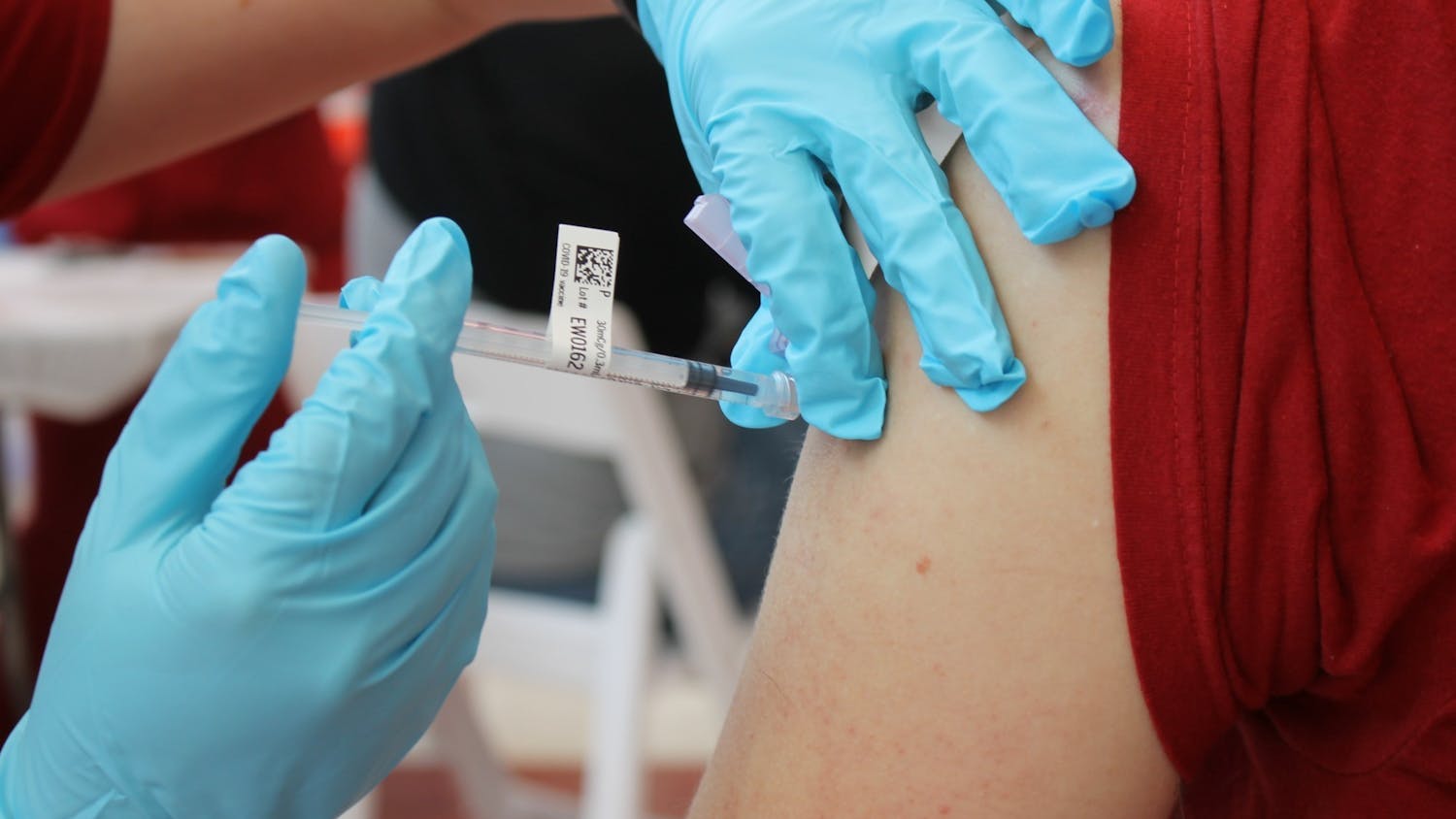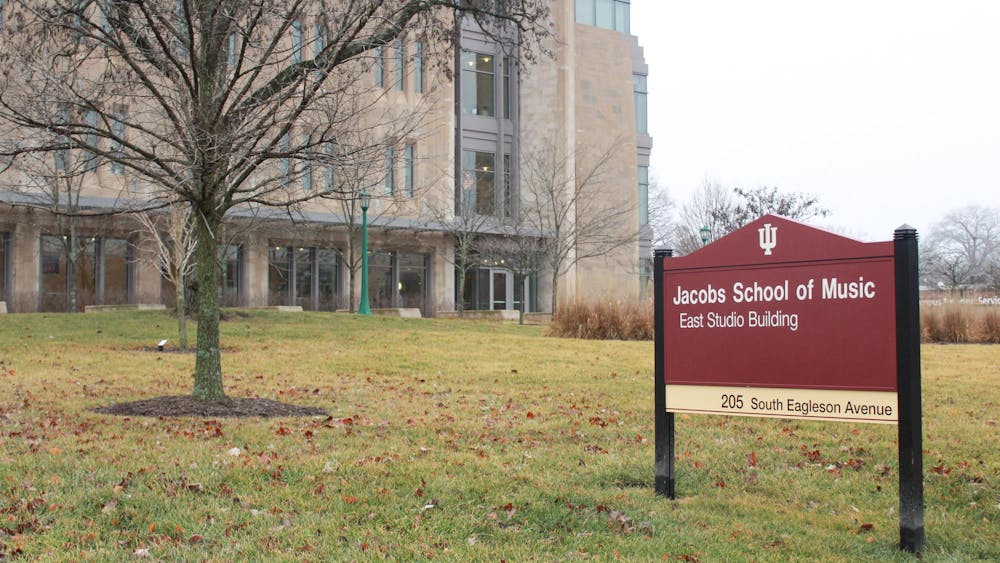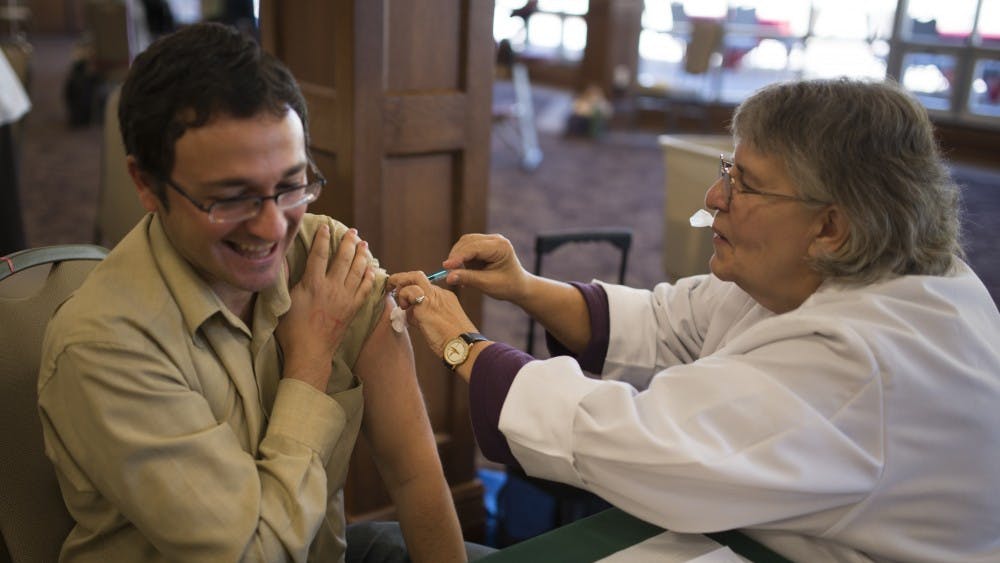Last month the FDA approved emergency contraceptives for over-the-counter sales. Health officials contend that the decision will not affect sexual behavior in the United States; opponents fear that Plan B will promote irresponsibility and enable more unethical conduct.\nLocal health officials say the government's move to approve emergency contraceptives for over-the-counter sales is a step in the right direction for sexual health. But, a week and a half after the announcement, opponents fear the pill, Plan B, will promote irresponsible behavior.\nDespite the Food and Drug Administration's approval, Plan B, also known as the morning-after pill, will not appear on pharmacy shelves for purchase until January at the earliest, said IU Health Center Pharmacist Cheryl Thomas, because the packaging for over-the-counter Plan B is not ready. She said current prescription packaging at the IU Health Center is priced at $25, and included with the emergency pill are condoms, instructions on using condoms, a pregnancy test and information about the pill itself.\nAt this point it is unclear as to whether or not all local pharmacies will carry the over-the-counter emergency contraceptives. Some pharmacists said they were not permitted to respond to questions about the drug. \nPlan B prevents pregnancy by using the hormone levonorgestrel, the same hormone used in regular birth-control pills, according to www.go2planb.com, a Web site operated by Barr Pharmaceuticals, the company that produces the contraceptive. However, Plan B uses a more concentrated dose of the hormone than birth control. The increased hormone level keeps eggs from leaving the ovary and can prevent them from becoming fertilized. The site says Plan B does not affect fertilized eggs that are attached to the uterus. \nBetty Cockrum, CEO of Indiana's 37 Planned Parenthood health centers, said she thinks it is overwhelmingly clear that over-the-counter distribution of Plan B will not change sexual behavior. In Great Britain, she said, Plan B is already available over the counter, and a study of 6,000 women there supported Cockrum's assertion about sexual behavior. \nThe FDA's decision to make Plan B available over the counter will be especially important for Indiana, which, Cockrum said, has the second highest number of teenage pregnancies per day in the United States. She said there are, on average, 31 per day, 10 of which are in cases involving youths 16 and under. Currently, Plan B is only available over-the-counter for women 18 and older.\nIndiana state Senator Jeff Drozda, R-Westfield, a former Right to Life executive vice president, said he thinks introduction of emergency contraceptives over-the-counter will be harmful to women and society. Drozda said he thinks birth-control pills simply weaken the uterine lining and could potentially flush out an already fertilized embryo. Drozda also said he thinks life begins at fertilization.\n"If (emergency contraception) wouldn't harm a fertilized egg, there would be no reason to take the pill," he said. \nCockrum and other members of Planned Parenthood wanted the FDA to approve distribution for women as young as 16.\n"With the conservative nature of D.C. and politics, they were unwilling to lower the age," Cockrum said.\n"Most of the coalitions for women wanted it to be 16," Thomas said. \nWomen's groups pushed the federal government to approve over-the-counter Plan B sales to girls as young as 16, the Associated Press reported.\nOn Valentine's Day in 2001, a petition was presented to the FDA to make emergency contraceptives available over the counter, according to www.plannedparenthood.org. The request was denied, and a second petition was issued in 2003. FDA Acting Commissioner Lester Crawford also denied the request, despite the approval of several FDA panels. \nCrawford was nominated by President Bush in February 2005 to become the new commissioner of the FDA. Sen. Hillary Rodham Clinton, D-NY, and Patty Murray, D-Wash., refused to endorse the nomination until a decision could be reached regarding Plan B. \nCrawford promised a decision by Sept. 1 of that year, but Plan B met another stumbling block during the decision-making process. \nSusan Wood, director of the Office of Women's Health at the FDA, resigned in protest. Following a series of resignations and debate, Plan B was approved by the FDA for over-the-counter distribution. \n"Every woman of reproductive age should have emergency contraception in her medicine cabinet," Cockrum said.\nThe Planned Parenthood Web site says over-the-counter distribution of Plan B could prevent 1.7 million unintended pregnancies in the United States every year.\nSome students predict adverse affects of Plan B's oncoming availability.\nSophomore Sean Johnson said he has spoken to several female students who might not continue to use condoms once over-the-counter Plan B is available. He said they might think the morning-after pill is like a free pass to be irresponsible and hopes that Plan B will not become Plan A for IU students.\nSophomore Erin Parker also fears Plan B will promote irresponsible behavior. \n"It might make students feel they can do whatever they want because of fewer repercussions, and they may be less responsible with sexual activity," she said.\nIU Health Center Director of Health and Wellness Education Anne Reese does not think the over-the-counter approval will cause a great shift in sexual culture. She cited research from the Journal of the American Medical Association, which, at its crux, indicated that men and women will continue to use their habitual methods of birth control even if the emergency contraceptive is available. Reese said condoms are still a good idea.\n"Condom use is for birth control and safer sex," Reese said. \nBut in the event that a condom breaks, or other forms of birth control fail, Plan B could be used exactly as the name implies, and Reese said that the over-the-counter distribution will have some very positive outcomes. \n"Since (use of the emergency \ncontraceptive) is time-sensitive, this (over-the-counter distribution) will allow people to get Plan B without the stress of going to the doctor or the health center," Reese said. \nReese also said new research suggests the pill might be effective up to five days after unprotected intercourse. Previously, it was thought to work only within 72 hours. But Reese said the new evidence doesn't mean women should take their time with Plan B.\n"The longer you wait, the less effective it is," Reese said. Scientists have wanted emergency contraceptives to be available over-the-counter for some time, she said. \n"It has been held up for political and nonscientific reasons," she said.
In case of emergency
Plan B will soon be available at pharmacies without a prescription
Get stories like this in your inbox
Subscribe





